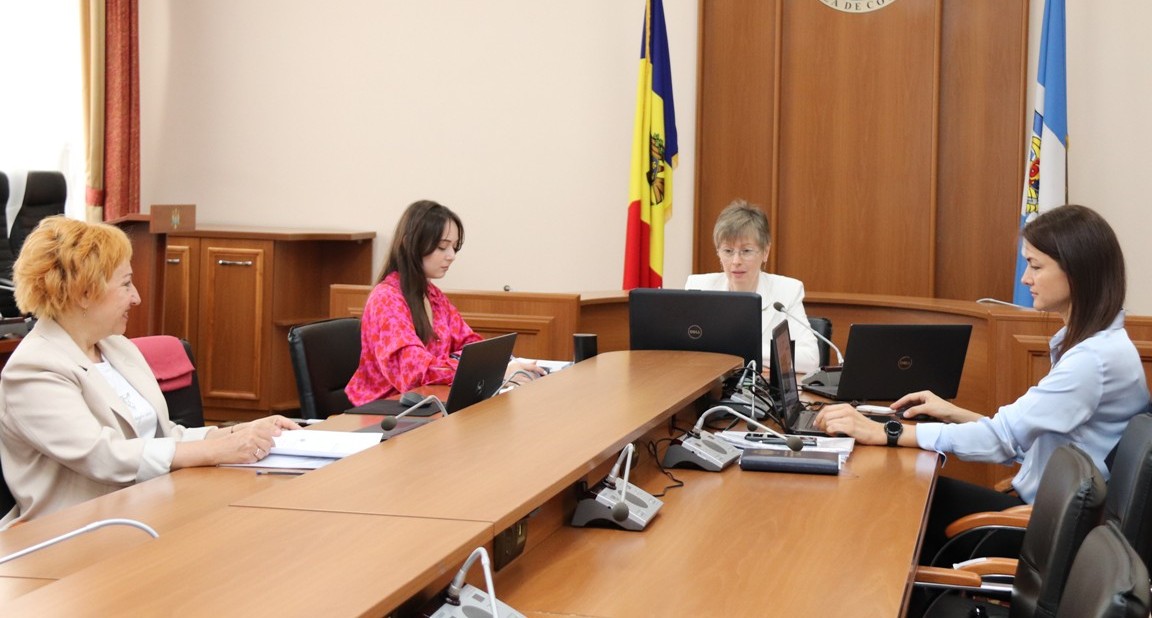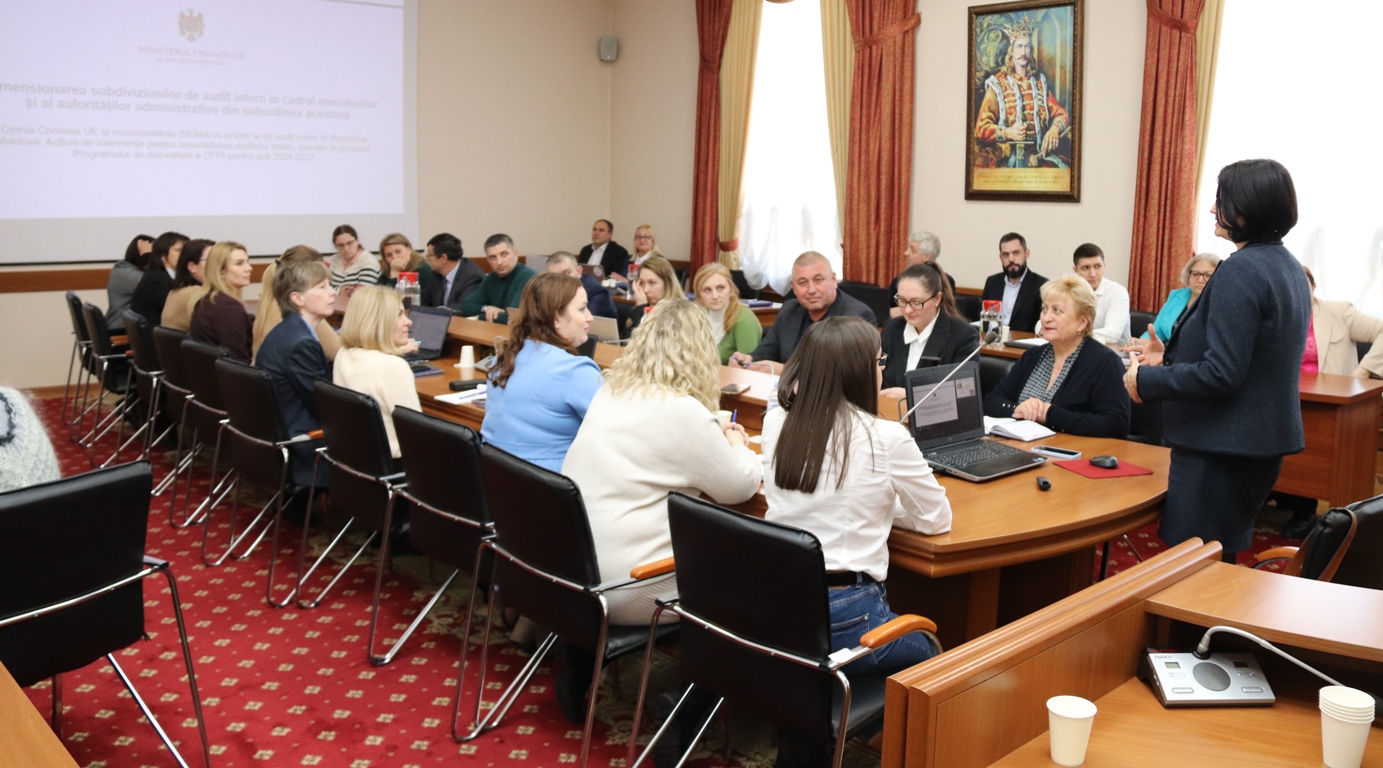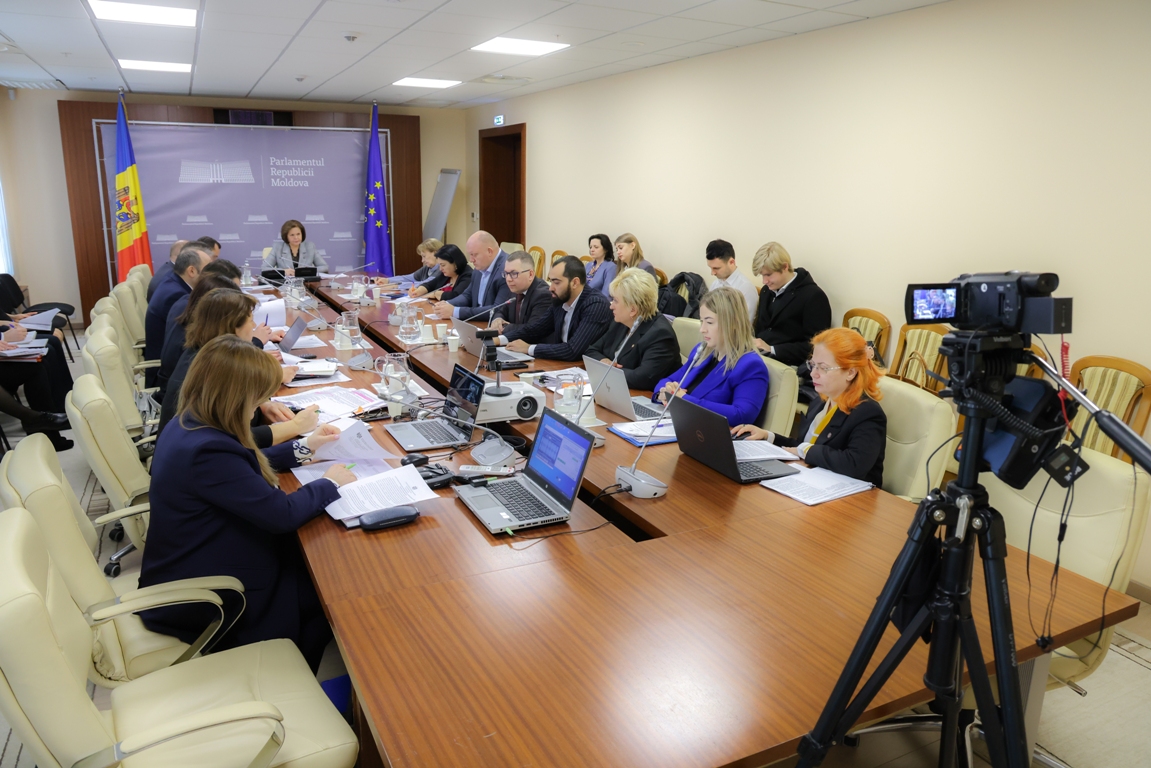
On August 26, the Court of Accounts of the Republic of Moldova (CoARM) examined the compliance audit report on the management of public assets by the Public Property Agency (PPA) during 2019-2021.
The subject of the audit concerned the corporate administration of state-owned enterprises and commercial companies with public capital. At the same time, other related areas were tangentially addressed, such as: administration of public property of the state, delimitation and record of public property, monitoring the efficiency of use of public property, ensuring the rights and patrimonial interests of the state.
The Public Property Agency exercises the functions of founder of 126 state enterprises and holder of shares in 77 commercial companies with the state's share in the share capital. The value of the share capital of the state enterprises administered by the PPA constituted 4,857.2 million lei and the value of the shares – 4,581 million lei, representing an imposing element of public property.
Based on the findings of the audit, carried out on the segment of corporate administration of state-owned enterprises and commercial companies, the Court of Accounts found that the audited process was defective and non-functional, characterized by the existence of institutional inabilities generating violations of the normative framework, including systemic illegality, risks of dispossession of state property and other vulnerabilities, thus compromising the capacity of the state authorities to manage investments in the corporate sector. This conclusion is based on the following audit observations:
- the lack of strategic visions in the field of state participation in the economy, aimed at defining and correlating the objectives and principles of participation with the ways of corporate administration;
- the lack of elaboration and approval of the Strategic Development Program, the annual Action Plan, also lacking internal regulations;
- the lack of correlation of the functions of the subdivisions with the structure of the Agency, which generates the non-fulfillment of tasks;
- the insufficiency of information systems, which does not allow the full realization of delegated tasks;
- the statutes of the state enterprises are not approved according to the established model, the assets deposited in the social capital and the assets transferred to the management of the enterprises not being established;
- the PPA did not monitor the performance evolution of state-owned enterprises, which would allow it to intervene at the right time, proposing some management optimization decisions;
- the lack of examination and evaluation within the Government of the Report on the administration and denationalization of public state property did not contribute to the improvement and consolidation of management related to corporate administration;
- the lack of exhaustive measures to ensure the rights and patrimonial interests of the state, through the lack of designation or inactivity of the debtor's representatives in the insolvency procedures of state enterprises;
- the assumption by the administrators of the insolvency of the right to administer and dispose of public property assets, which generated possible dispossession of the state from the right of possession, use and disposal of public property assets;
- defective administration of public property assets transferred for use to enterprises with public capital, which generated their underutilization;
- the use of agricultural land with disastrous effects for the qualitative characteristics of the land;
- the interim exercise of the position of administrator of the state enterprise, avoiding the selection of candidacy on the basis of competition;
- the uncertain reasoning of the founder's decisions that allowed some entities with public capital not to calculate dividends and breakdowns in the state budget;
- entrenched faulty procedures have generated discrepancies between data on business records provided by different registries;
- the existence of normative gaps that did not allow the organization of the accounting records of public property assets transferred to the administration of enterprises both to the founder and to the enterprise that manages them;
- non-timely implementation of the recommendations of the previous audits of the Court of Accounts.
Among the factors that determined the non-compliances found, the Court of Accounts identified:
- the lack of a strategic vision, as well as the non-fulfillment of the attributions in order to develop and implement public policies in the field;
- the fragmentation of the internal managerial control system, whose functionality does not meet the predetermined requirements;
- overlapping of tasks delegated to different entities;
- the lack of information systems that would facilitate the work of the PPA’s employees and ensure better records and management of assets and processes related to corporate administration;
- insufficient actions in ensuring the rights and patrimonial interests of the state;
- the reiteration within the PPA of some deficiencies characteristic to the former founders of state enterprises;
- deficiencies caused by the lacunar character of the normative framework.
Although some of the deficiencies found by the audit were caused by the imperfection or gaps in the regulatory framework, known to the state authorities, they did not show promptness to remedy them, not having promoted the necessary changes in the applicable normative framework, which would have ensured added value in corporate administration, the records of enterprises and public patrimony.
Also, the Court of Accounts considers it imperative to review the normative framework related to the field, elaborated and adjusted based on the deep examination of the existing situations and in conjunction with the strategic objectives claimed to be achieved through the participation of the state in the economy, in particular, the undertaking of stringent measures regarding the development of policies, procedures and tools necessary to ensure the good governance of this process, as well as for the purpose of strengthening internal managerial control within the PPA.
 WITH DEFICIENCES OF VIEW
WITH DEFICIENCES OF VIEW Youtube
Youtube Facebook
Facebook


 print
print




